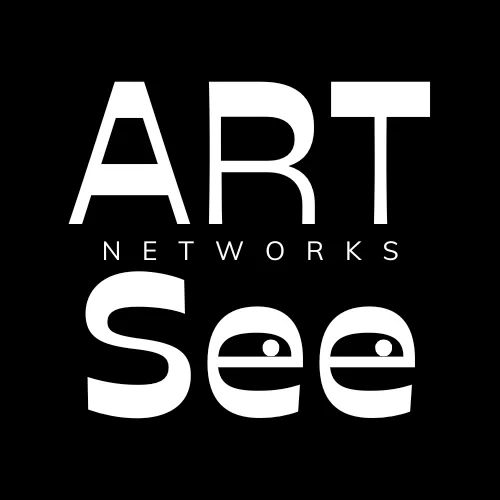Stand-up comedy is a uniquely brutal art form. Unlike theater, music, or film, there’s no ensemble to share the spotlight, no script to hide behind, and no artistic ambiguity to shield failure. Success hinges on one person’s ability to command laughter from a room of strangers using nothing but words, timing, and nerve. It’s a high-wire act of vulnerability—what comedians often describe as “emotional nakedness.” Rizal Van Geyzel’s Arrested, a 60-minute tour de force, doesn’t just acknowledge this vulnerability—it weaponizes it, transforming personal and political trauma into a masterclass in comedic resilience.
Stripped-Down Intimacy: Comedy as Confrontation
The show’s premise is rooted in a real-life ordeal: Van Geyzel’s prosecution under Malaysia’s Sedition Act following the shutdown of The Crackhouse, the country’s first comedy club. Yet Arrested isn’t a solemn retelling. Instead, it’s a defiant reframing. Van Geyzel opens with a deceptively simple observation: Malaysia’s ethnic trifecta—Malay, Chinese, Indian—is a “comedy goldmine.” The joke lands not just because it’s true, but because it mirrors the casual, often uncomfortable banter heard at Malaysian family gatherings. This relatability is Van Geyzel’s superpower. He takes stereotypes whispered over teh tarik and amplifies them into punchlines that unite rather than divide, inviting audiences to laugh with each other, not at each other.
But Arrested transcends mere caricature. Van Geyzel’s brilliance lies in his ability to layer social critique beneath the humor. A joke about racial stereotypes morphs into a meta-commentary on Malaysia’s unspoken anxieties. When audience members mutter, “My aunt said that last week!” or “My dad does that!” they’re not just recognizing the material—they’re confronting their own complicity in these tropes. Comedy becomes a mirror, reflecting societal contradictions back at the crowd.
The Alchemy of Trauma: Turning Straw into Gold
The show’s emotional core, however, is Van Geyzel’s account of his arrest and its absurd aftermath. Here, his storytelling shifts from observational wit to tragicomedy. He recounts how authorities used his own jokes as courtroom evidence, a Kafkaesque scenario that he reenacts with devastating hilarity. Midway through the show, he delivers a joke in his signature sharp, rhythmic style—only to repeat it verbatim later in a lifeless monotone, mimicking the court official who butchered his material. The contrast is electric. The audience roars, not just at the joke itself, but at Van Geyzel’s audacity to reclaim his voice from those who weaponized it against him.
This moment epitomizes stand-up’s unique power: the ability to alchemize pain into catharsis. Van Geyzel channels his fury into a punchline that doubles as protest, turning the courtroom into a stage and his oppressors into unwitting punchlines. It’s a defiant act of ventriloquism, yanking control back from censorship. As he quips, “If you’re going to arrest me for my jokes, at least deliver them properly!” the laughter carries a bitter edge. We’re not just laughing *at* the absurdity—we’re laughing *through* it.
Beyond the Punchlines: Comedy as Legacy
What elevates Arrested from a great comedy set to a cultural artifact is Van Geyzel’s introspection. He doesn’t just tell jokes—he dissects why they matter. A standout segment sees him explaining stand-up history to his children before his arrest, a moment that’s equal parts heartfelt and hilariously self-aware. “Your Dad … is a *f*cking legend*,” he deadpans, mocking comedian vanity while quietly underscoring his commitment to the craft. This duality—pride and self-deprecation—anchors the show. Van Geyzel isn’t just a performer; he’s a steward of Malaysian comedy, mentoring emerging talents (evident in the show’s stellar Malay-language opener, the young and very funny Fattah Ameen, who thrilled even non-Malay speakers).
A Mirror to Malaysia
For audiences, particularly Malaysians, Arrested resonates as both entertainment and provocation. It asks: Can comedy survive—and thrive—in a climate of repression? Van Geyzel’s answer is a resounding yes, but not without cost. The show’s climax, where he recounts The Crackhouse’s shutdown, is tinged with melancholy. Yet even here, humor prevails. He jokes about bureaucratic incompetence, transforming systemic frustration into shared release. It’s a reminder that laughter isn’t escapism—it’s resistance.
Conclusion: Why *Arrested* Matters
In a nation where free speech often feels like a tightrope act, *Arrested* is more than a comedy special—it’s a manifesto. Van Geyzel doesn’t just navigate Malaysia’s cultural minefield; he dances across it, using humor to disarm fear and forge connection. His jokes about race, governance, and artistic survival aren’t just funny—they’re necessary. They challenge audiences to laugh at the absurdity of repression while recognizing their own role in perpetuating—or dismantling—it.
For international audiences, particularly at the Melbourne Comedy Festival where Van Geyzel is set to perform, Arrested offers a window into Malaysia’s complex identity. But for Malaysians, it’s a rallying cry: a testament to art’s power to outlast those who seek to silence it. As Van Geyzel proves, sometimes the bravest thing a comedian can do isn’t to tell a risky joke—it’s to believe that laughter, against all odds, can still change the room.
Review by Marcus Khoo, an educator and researcher exploring the intersection of learning and community to create more equitable knowledge systems.Review generated by ARTSEE.NET’s Young Art Writers Sandbox Programme.
ARRESTED, “The infamous story of The Crackhouse Comedy Club KL” was staged at Yap Ah Shak House, in Kuala Lumpur on 20th February & 18th March 2025.


Leave a Reply